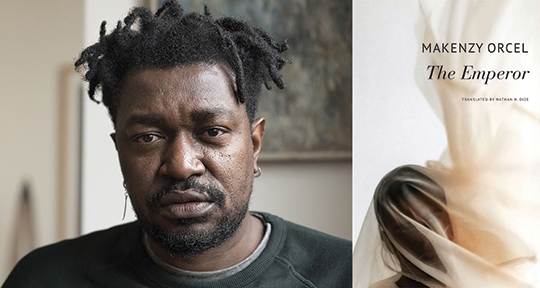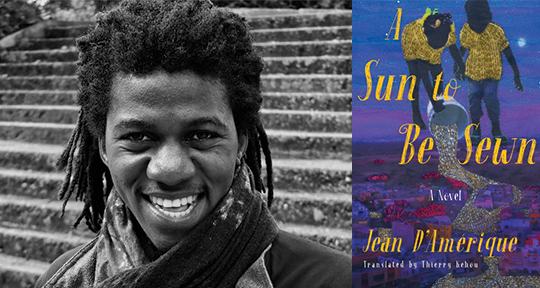The Emperor by Makenzy Orcel, translated from the French by Nathan H. Dize, Seagull Books, 2024
Set in contemporary Haiti, Makenzy Orcel’s The Emperor arrives to the Anglosphere at a time when the Caribbean nation is in the news for ongoing political, economic, and humanitarian crises. In Nathan H. Dize’s translation, the words of Makenzy’s protagonist almost seem to presage the current moment as he articulates: “In short, this country is a sea of shit. A tomb. . . we live in a black hole. We’d all leave if we could, every single one of us.”
The protagonist does not have a name—or more specifically, he cannot seem to remember it. Presumably abandoned by his helpless family in a hurricane-ravaged countryside, he is only given an alphanumerical code as an identity, and grows up in a lakou ruled by a self-fashioned, pseudo-spiritual leader—the titular Emperor, who occupies the most beautiful house in all of the lakou. The protagonist sketches: “The other houses planted around the Emperor’s are not homes but narrow sheep pens, ajoupas, huts, used to corral an entire flock of absent souls, followers who are forced-fed truths and falsehoods by the mystical master. . .” Amongst them, the protagonist—who is later christened “P” by the only woman he will ever love—is the least sheeplike. Celebrated as a drummer in the local Vodou rituals but equally subjected to the lakou’s terrors, the narrative follows his life as he manages to flee its confines, reincarnating himself as a newspaper deliveryman in the capital, Port-au-Prince.
The Emperor is written in a stream of consciousness style, and this design of P’s thoughts communicates the claustrophobic nature of his mental landscape, on which scurries a concoction of anger, anxiety, distrust, and a constant sense of imminent, lurking violence. Almost reminiscent of Kafka’s The Trial, the narrative is carried along an overarching tone of disconnection; in addition to his namelessness, the protagonist is also unaware of what he looks like. He ruminates on never having looked at his own reflection, and apprehends whether his appearance resembles the person he is inside. However, P is not the only one who remains nameless (and faceless); the host of characters he introduces—whether exploitative or comforting or everyday neutral—are never named. Fundamentally, this perhaps conveys the extent of withdrawal the protagonist embodies due to his past experiences, because such is how power shapes its subjects. P, whose only close companion is the “Other Within” (the voice inside his head), speculates: “How could I survive until now in this immeasurable solitude?” READ MORE…


